45 start with P start with P
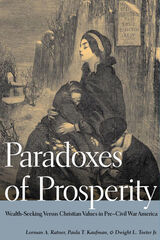
At the same time, the United States felt the influence of the rise of popular mass-circulation newspapers and magazines and the surge in American book publishing. Concern over living correctly as well as prosperously was commonly discussed by leading authors and journalists, who were now writing for ever-expanding regional and national audiences. Women became more important as authors and editors, giving advice and building huge markets for women readers, with the magazine Godey's Lady's Book and novels by Susan Warner, Maria Cummins, and Harriet Beecher Stowe expressing women's views about the troubled state of society. Best-selling male writers--including novelist George Lippard, historian George Bancroft, and travel writer Bayard Taylor--were among those adding their voices to concerns about prosperity and morality and about America's place in the world. Writers and publishers discovered that a high moral tone could be exceedingly good for business.
The authors of this book examine how popular writers and widely read newspapers, magazines, and books expressed social tensions between prosperity and morality. This study draws on that nationwide conversation through leading mass media, including circulation-leading newspapers, the New York Herald and the New York Tribune, plus prominent newspapers from the South and West, the Richmond Enquirer and the Cincinnati Enquirer. Best-selling magazines aimed at middle-class tastes, Harper's Magazine and the Southern Literary Messenger, added their voices, as did two leading business magazines.

The Patient Self-Determination Act of 1990 required medical facilities to provide patients with written notification of their right to refuse or consent to medical treatment. Using this Act as an important vehicle for improving the health care decisionmaking process, Lawrence P. Ulrich explains the social, legal, and ethical background to the Act by focusing on well-known cases such as those of Karen Quinlan and Nancy Cruzan, and he explores ways in which physicians and other caregivers can help patients face the complex issues in contemporary health care practices.
According to Ulrich, health care facilities often address the letter of the law in a merely perfunctory way, even though the Act integrates all the major ethical issues in health care today. Ulrich argues that well-designed conversations between clinicians and patients or their surrogates will not only assist in preserving patient dignity — which is at the heart of the Act—but will also help institutions to manage the liability issues that the Act may have introduced. He particularly emphasizes developing effective advance directives. Ulrich examines related issues, such as the negative effect of managed care on patient self-determination, and concludes with a seldom-discussed issue: the importance of being a responsible patient.
Showing how the Patient Self-Determination Act can be a linchpin of more meaningful and effective communication between patient and caregiver, this book provides concrete guidance to health care professionals, medical ethicists, and patient-rights advocates.


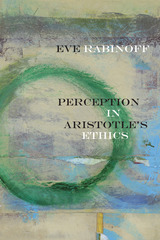
Rabinoff's project is philosophically motivated both by the details of Aristotle’s thought and more generally by an increasing philosophical awareness that the ethical agent is an embodied, situated individual, rather than primarily a disembodied, abstract rational will.

In this volume, Josef Fuchs has brought together 12 important essays which consider various aspects of the relationship between Christian morality and human behavior. Among the subjects he discusses are the connections between moral theology and Christian experience, the absolute character of moral norms, and the importance of ethical reflection in shaping the future of the human race.
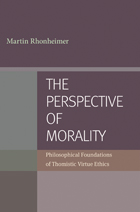

Modern psychological and political theory meet head-on in this powerful re-evaluation of America's contradictory and sometimes dangerous addiction to individualism. Best-selling author Gaylin and co-author Jennings investigate the contentious intersections of interdependence and autonomy, rights and public responsibility. They examine the painful abrasion occurring between America's tradition of personal freedom and privacy, as it rubs against the still valuable if almost vanishing ideals of sacrifice and social order.
Our current culture of autonomy—championed by both liberals on the left and libertarians on the right—is based on the idea of rationality as the motivation for human conduct. But, as the authors remind us, people are not simply rational creatures—appeals to emotions are always far more effective than logical argument in changing our behavior.
This timely edition includes a new preface; updated examples and illustrations throughout; and new coverage of contemporary social critics and their work since the publication of the first edition. Two essential new chapters, one on the movement to forgo life-sustaining treatment and the other on physician-assisted suicide, particularly clarify the authors' arguments. Drawing on these and numerous other illustrations—with significant emphasis on the state of American health care—Gaylin and Jennings demonstrate that society has not just the right but the duty to occasionally invoke fear, shame, and guilt in order to motivate humane behavior.
As cases of AIDS are once again on the upswing, as the dangerously mentally ill are allowed to wander free and untreated, as starvation and poverty still hold too many in its grip in the richest nation on the planet, this controversial book, considerably revised and expanded, is needed more than ever. If we are to indeed preserve and nurture a genuinely free—and liberal—society, the authors suggest that these "coercions" may be essential for the health and the maturity of a nation where we all too often avert our eyes, not seeing that our neighbor is in pain or trouble and needs our help.

Volume 1 includes essays on Spinoza, Descartes, Bradley, Collingwood, Russell, Moore, and Popper, as well as two previously unpublished papers on the history of philosophy as a discipline, and on Ryle and Wittgenstein's nature of philosophy. Linked by Donagan's commitment to the central importance of history for philosophy and his interest in problems of historical understanding, these essays represent the remarkable scope of Donagan's thought.

Volume 2 addresses issues in the philosophy of action and moral theory. With papers on Kant, von Wright, Sellars, and Chisholm, this volume also covers a range of questions in applied ethics—from the morality of Truman's decision to drop atomic bombs on Hiroshima and Nagasaki to ethical questions in medicine and law.
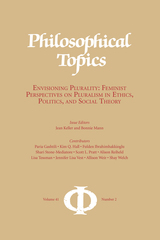
Contents:
Why a Feminist Volume on Pluralism? – Bonnie Mann and Jean Keller
PLURALISM ’S FAILURES AND CERTAIN CONDITIONS FOR THE POSSIBILITY OF SUCCESS
Indigenous Agencies and the Pluralism of Empire – Scott L. Pratt
What Would Philosophic Pluralism Look Like?: True Dialogue, Epistemic Credibility, Rational Parity, and Death in the University – Jennifer Lisa Vest
Asking Too Much? Civility vs. Pluralism – Alison Reiheld
Attending to Others: Simone Weil and Epistemic Pluralism – Shari Stone-Mediatore
FEMINIST PLURALISM AND RELIGIOUS WORLDVIEWS
Islamic Feminisms and Freedom – Allison Weir
Is an “Islamic Feminism” Possible?: Gender Politics in the Contemporary Islamic Republic of Iran – Paria Gashtili
Beyond the Modern/Religious Dichotomy: The Veil and Feminist Solidarity in Contemporary Turkey – Fulden Ibrahimhakkioglu
Philosophy, Religion, Race, and Queerness: A Question of Accommodation or Access – Kim Q. Hall
FEMINIST PLURALISM AND FUNDAMENTAL VALUES
Value Pluralism, Intuitions, and Reflective Equilibrium – Lisa Tessman
Radical-cum-Relation: Bridging Feminist Ethics and Native Individual Autonomy – Shay Welch
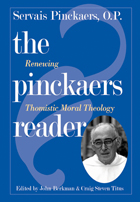
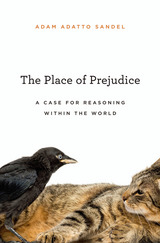
Today we associate prejudice with ignorance and bigotry and consider it a source of injustice. So how can prejudice have a legitimate place in moral and political judgment? In this ambitious work, Adam Sandel shows that prejudice, properly understood, is not an unfortunate obstacle to clear thinking but an essential aspect of it. The aspiration to reason without preconceptions, he argues, is misguided.
Ranging across philosophy from Aristotle to Heidegger and Gadamer, Sandel demonstrates that we inherit our "prejudice against prejudice" from the Enlightenment. By detaching reason from habit and common opinion, thinkers such as Bacon, Descartes, and Kant invented prejudice--as we understand it today--as an obstacle to freedom and a failure to think for oneself.
The Place of Prejudice presents a powerful challenge to this picture. The attempt to purge understanding of culture and history leads not to truth, Sandel warns, but to shallowness and confusion. A purely detached notion of reason deprives judgment of all perspective, disparages political rhetoric as mere pandering, and denies us the background knowledge we need to interpret literature, law, and the past. In a clear, eloquent voice, Sandel presents instead a compelling case for reasoning within the world.
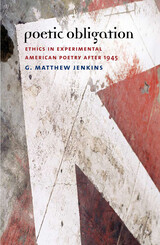
American experimental poetry is usually read in either political or moral terms. Poetic Obligation, by contrast, considers the poems of Louis Zukofsky, Charles Reznikoff, George Oppen, Edward Dorn, Robert Duncan, Susan Howe, and Lyn Hejinian in terms of the philosophical notion of ethical obligation to the Other in language. Jenkins's historical trajectory enables him to consider the full breadth of ethical topics that have driven theoretical debate since the end of World War II. This original approach establishes an ethical lineage in the works of twentieth-century experimental poets, creating a way to reconcile the breach between poetry and the issue of ethics in literature at large.
With implications for a host of social issues, including ethnicity and immigration, economic inequities, and human rights, Jenkins's imaginative reconciliation of poetry and ethics will provide stimulating reading for teachers and scholars of American literature as well as advocates and devotees of poetry in general. Poetic Obligation marshals ample evidence that poetry matters and continues to speak to the important issues of our day.

Between 1990 and 1993, breast cancer activism became a significant political movement. The issue began to receive extensive media attention, and federal funding for breast cancer research jumped dramatically. Describing the origins of this surge in interest, Maureen Hogan Casamayou attributes it to the emergence of politically potent activism among breast cancer survivors and their supporters. Exploring the creation and development of the National Breast Cancer Coalition (NBCC), she shows how many of its key leaders were mobilized by their own traumatic experiences with the disease and its treatments.
Casamayou details the NBCC’s meteoric rise and impressive lobbying efforts, explaining how—in contrast to grassroots movements founded by dedicated individuals—the coalition grew from the simultaneous efforts of a network of women who invested their time, energy, money, and professional skills in the fight for increased funding for breast cancer research. This multiple leadership—or collective entrepreneurialism, says Casamayou—was crucial to the NBCC’s success framing the issue in the minds of the public and policymakers alike.

A call to reform Catholic health care ethics, inspired by the teachings of Pope Francis
Since its first edition in 1948, the US Conference of Catholic Bishops’ Ethical and Religious Directives for Catholic Health Care Services (ERD) has guided Catholic institutions in the provision of health care that reflects both the healing ministry of Jesus and the Church’s understanding of human dignity. However, while the papacy of Pope Francis and the clerical sex-abuse scandal both profoundly impacted the Catholic Church, the latest edition of the ERD does not address or reflect these transformations.
Now for the first time, Todd A. Salzman and Michael G. Lawler present an extended critical commentary on the 2018 ERD. They argue that it is problematic in a number of ways. First, the revised ERD continues to prioritize a rule-based over a personalist-based ethical method, with an emphasis on absolute norms that proscribe specific medical acts. Further, it does not take into account Pope Francis’s transforming ecclesiological, methodological, and anthropological visions, neither internally in Catholic health care institutions nor externally in collaborations between Catholic and non-Catholic health care institutions. Finally, the revised ERD provides no evidence that the bishops grasp how the clerical sex-abuse scandal and its cover-up have fundamentally undermined episcopal authority and credibility.
Salzman and Lawler propose new ways forward for US Catholic health care ethics that prioritize human dignity as their guiding principle. As there is pluralism in Catholic definitions of human dignity, there must be pluralism in the norms and directives that facilitate realizing human dignity. Pope Francis’s emphasis on the virtues of mercy and care should move the ERD forward from a focus on absolute norms in medical ethics to a focus on virtues and principles to guide both patients and health care professionals in their discerned conscientious health care decisions.
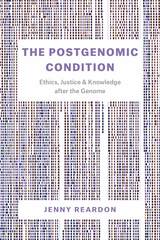
Drawing on more than a decade of research—in molecular biology labs, commercial startups, governmental agencies, and civic spaces—Reardon demonstrates how the extensive efforts to transform genomics from high tech informatics practiced by a few to meaningful knowledge beneficial to all exposed the limits of long-cherished liberal modes of knowing and governing life. Those in the American South challenged the value of being included in genomics when no hospital served their community. Ethicists and lawyers charged with overseeing Scottish DNA and data questioned how to develop a system of ownership for these resources when their capacity to create things of value—new personalized treatments—remained largely unrealized. Molecular biologists who pioneered genomics asked whether their practices of thinking could survive the deluge of data produced by the growing power of sequencing machines. While the media is filled with grand visions of precision medicine, The Postgenomic Condition shares these actual challenges of the scientists, entrepreneurs, policy makers, bioethicists, lawyers, and patient advocates who sought to leverage liberal democratic practices to render genomic data a new source of meaning and value for interpreting and caring for life. It brings into rich empirical focus the resulting hard on-the-ground questions about how to know and live on a depleted but data-rich, interconnected yet fractured planet, where technoscience garners significant resources, but deeper questions of knowledge and justice urgently demand attention.

Postures of the Mind was first published in 1985. Minnesota Archive Editions uses digital technology to make long-unavailable books once again accessible, and are published unaltered from the original University of Minnesota Press editions.
Annette Baier develops, in these essays, a posture in philosophy of mind and in ethics that grows out of her reading of Hume and the later Wittgenstein, and that challenges several Kantian or analytic articles of faith. She questions the assumption that intellect has authority over all human feelings and traditions; that to recognize order we must recognize universal laws—descriptive or prescriptive; that the essential mental activity is representing; and that mental acts can be analyzed into discrete basic elements, combined according to statable rules of synthesis.
In the first group of essays—"Varieties of Mental Postures"—Baier evaluates the positions taken by philosophers ranging from Descartes to Dennett and Davidson. Among her topics are remembering, intending, realizing, caring, representing, changing one's mind, justifying one's actions and feelings, and having conflicting reasons for them. The second group of essays—"Varieties of Moral Postures" - explores the sort of morality we get when all of these capacities become reflective and self-corrective. Some deal with particular moral issues—our treatment of animals, our policies regarding risk to human life, our contractual obligations; others, with more general questions on the role of moral philosophers and the place of moral theory. These essays respond to the theories of Hobbes, Kant, Rawls, and MacIntyre, but Baier's most positive reaction is to David Hume; Postures of the Mind affirms and cultivates his version of a moral reflection that employs feeling and tradition as well as reason.

For nearly fifteen years Practical Decision Making in Health Care Ethics has offered scholars and students a highly accessible and teachable alternative to the dominant principle-based theories in the field. Devettere’s approach is not based on an ethics of abstract obligations and duties, but, following Aristotle, on how to live a fulfilled and happy life—in short, an ethics of personal well-being grounded in prudence, the virtue of ethical decision making.
This third edition is revised and updated and includes discussions of several landmark cases, including the tragic stories of Terri Schiavo and Jesse Gelsinger (the first death caused by genetic research). Devettere addresses new topics such as partial-birth abortion law, embryonic stem cell research, infant euthanasia in The Netherlands, recent Vatican statements on feeding tubes, organ donation after cardiac death, new developments in artificial hearts, clinical trials developed by pharmaceutical companies to market new drugs, ghostwritten scientific articles published in major medical journals, and controversial HIV/AIDS research in Africa. This edition also includes a new chapter on the latest social and political issues in American health care.
Devettere’s engaging text relies on commonsense moral concepts and avoids academic jargon. It includes a glossary of legal, medical, and ethical terms; an index of cases; and thoroughly updated bibliographic essays at the end of each chapter that offer resources for further reading. It is a true classic, brilliantly conceived and executed, and is now even more valuable to undergraduates and graduate students, medical students, health care professionals, hospital ethics committees and institutional review boards, and general readers interested in philosophy, medicine, and the rapidly changing field of health care ethics.
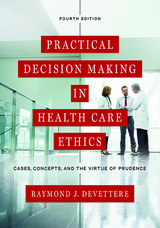
For more than twenty years Practical Decision Making in Health Care Ethics has offered scholars and students a highly accessible and teachable alternative to the dominant principle-based theories in the field. Raymond J. Devettere's approach is not based on an ethics of abstract obligations and duties but, following Aristotle, on how to live a fulfilled and happy life—in short, an ethics of personal well-being grounded in prudence, the virtue of ethical decision making.
New sections added in this revised fourth edition include sequencing whole genomes, even those of newborns; the new developments in genetic testing now provided by online commercial companies such as 23andMe; the genetic testing of fetuses by capturing their DNA circulating in the pregnant woman's blood; the Stanford Prison experiment and its relevance to the abuses at the Abu Graib prison; recent breakthroughs in the diagnosis of consciousness disorders such as PVS; the ongoing controversy generated by the NIH study of premature babies at many NICUs throughout the county, a study known as SUPPORT that the OHRP (Office of Human Research Protections, an office within the department of HHS) deemed unethical.
Devettere updates most chapters. New cases include Marlise Munoz (dead pregnant woman's body kept on life support by a Texas hospital), Jahi McMath (teenager pronounced dead in California but treated as alive in New Jersey), Margot Bentley (nursing home feeding a woman dying of end stage Alzheimer’s despite her advance directive that said no nourishment or liquids if she was dying with dementia), Brittany Maynard (dying 29-year-old California woman who moved to Oregon to commit suicide with a physician's help), and Samantha Burton (woman with two children who suffered rupture of membranes at 25 weeks and whose physician obtained a court order to keep her at the hospital to make sure she stayed on bed rest). Thoughtfully updated and renewed for a new generation of readers, this classic textbook will be required reading for students and scholars of philosophy and medical ethics.

Practical Reason, Aristotle, and Weakness of the Will was first published in 1984. Minnesota Archive Editions uses digital technology to make long-unavailable books once again accessible, and are published unaltered from the original University of Minnesota Press editions.
One of the central problems in recent moral philosophy is the apparent tension between the "practical" or "action-guiding" side of moral judgments and their objectivity. That tension would not exist if practical reason existed (if reason played a substantial role in producing motivation) and if recognition of obligation were one of the areas in which practical reason operated. In Practical Reason, Aristotle, and the Weakness of the Will,Norman Dahl argies that, despite widespread opinion to the contrary, Aristotle held a position on practical reason that both provides an objective basis for ethics and satisfies an important criterion of adequacy—that it acknowledges genuine cases of weakness of the will. In arguing for this, Dahl distinguishes Aristotle's position from that of David Hume, who denied the existence of practical reason. An important part of his argument is an account of the role that Aristotle allowed the faculty nous to play in the acquisition of general ends. Relying both on this argument and on an examination of passages from Aristotle's ethics and psychology, Dahl argues that Aristotle recognized that a genuine conflict of motives can occur in weakness of the will. This provides him with the basis for an interpretation that finds Aristotle acknowledging genuine cases of weakness of the will.
Dahl's arguments have both a philosophical and a historical point. He argues that Aristotle's position on practical reason deserves to be taken seriously, a conclusion he reinforces by comparing that position with more recent attempts, by Kant, Nagel, and Rawls, to base ethics on practical reason.
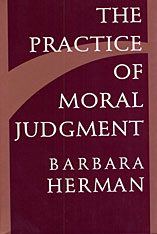
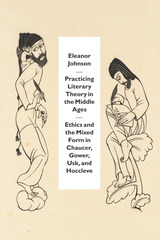
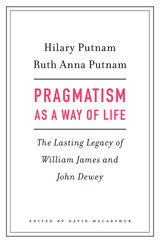
Throughout his diverse and highly influential career, Hilary Putnam was famous for changing his mind. As a pragmatist he treated philosophical “positions” as experiments in deliberate living. His aim was not to fix on one position but to attempt to do justice to the depth and complexity of reality. In this new collection, he and Ruth Anna Putnam argue that key elements of the classical pragmatism of William James and John Dewey provide a framework for the most progressive and forward-looking forms of philosophy in contemporary thought. The Putnams present a compelling defense of the radical originality of the philosophical ideas of James and Dewey and their usefulness in confronting the urgent social, political, and moral problems of the twenty-first century.
Pragmatism as a Way of Life brings together almost all of the Putnams’ pragmatist writings—essays they wrote as individuals and as coauthors. The pragmatism they endorse, though respectful of the sciences, is an open experience-based philosophy of our everyday lives that trenchantly criticizes the fact/value dualism running through contemporary culture. Hilary Putnam argues that all facts are dependent on cognitive values, while Ruth Anna Putnam turns the problem around, illuminating the factual basis of moral principles. Together, they offer a shared vision which, in Hilary’s words, “could serve as a manifesto for what the two of us would like philosophy to look like in the twenty-first century and beyond.”

“Provocative and engaging…The array of urgent questions and crises facing our democracy makes one miss Richard Rorty’s voice: insistent, relentlessly questioning, and dedicated to the proposition that we can’t afford to let our democracy fail.”
—Chris Lehmann, New Republic
“Richard Rorty was the most iconoclastic and dramatic philosopher of the last half-century. In this final book, his unique literary style, singular intellectual zest, and demythologizing defiance of official philosophy are on full display.”
—Cornel West
“Coherent, often brilliant, and it presents a clear and timely case for political pragmatism.”
—Jonathan Rée, Prospect
“Today, there are few philosophers left whose thoughts are inspired by a unifying vision; there are even fewer who can articulate such a view in terms of such a ravishing flow of provocative, but sharp and differentiated, arguments.”
—Jürgen Habermas
Richard Rorty’s final masterwork offers his culminating thoughts on the influential version of pragmatism he began to articulate decades ago in his groundbreaking Philosophy and the Mirror of Nature. He identifies anti-authoritarianism as the principal impulse and virtue of pragmatism. Anti-authoritarianism, in this view, means acknowledging that our cultural inheritance is always open to revision because no authority exists to ascertain the truth, once and for all. If we cannot rely on the unshakable certainties of God or nature, then all we have left to go on—and argue with—are the opinions and ideas of our fellow humans. The test of these ideas, Rorty suggests, is relatively simple: Do they work? Do they produce the peace, freedom, and happiness we desire? To achieve this enlightened pragmatism is not easy, though. Pragmatism demands trust. It demands that we think and care about what others think and care about, and that we account for their doubts of and objections to our own beliefs.
No book offers a more accessible account of pragmatism, just as no philosopher has more eloquently challenged the hidebound traditions arrayed against the goals of social justice.

As prenatal tests proliferate, the medical and broader communities perceive that such testing is a logical extension of good prenatal care—it helps parents have healthy babies. But prenatal tests have been criticized by the disability rights community, which contends that advances in science should be directed at improving their lives, not preventing them. Used primarily to decide to abort a fetus that would have been born with mental or physical impairments, prenatal tests arguably reinforce discrimination against and misconceptions about people with disabilities.
In these essays, people on both sides of the issue engage in an honest and occasionally painful debate about prenatal testing and selective abortion. The contributors include both people who live with and people who theorize about disabilities, scholars from the social sciences and humanities, medical geneticists, genetic counselors, physicians, and lawyers. Although the essayists don't arrive at a consensus over the disability community's objections to prenatal testing and its consequences, they do offer recommendations for ameliorating some of the problems associated with the practice.
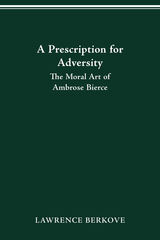
A Prescription for Adversity makes the revolutionary case that Ambrose Bierce, far from being a bitter misanthrope, was instead both a compassionate and moral author. Berkove, focusing on Bierce's short fiction, establishes the necessity of recognizing the pattern of his intellectual and literary development over the course of his career. The author shows that Bierce, probably the American author with the most extensive experience of the Civil War, turned to classical Stoicism and English and French Enlightenment literature in his postwar search for meaning. Bierce's fiction arose from his ultimately unsatisfying encounters with the philosophies those sources offered, but the moral commitment as well as the literary techniques of heir authors, particularly Jonathan Swift, inspired him. Dating Bierce's fiction, and introducing uncollected journalism, correspondence, and important new literary history and biographical information, Berkove brings new insights to a number of stories, including "A Son of the Gods" and "A Horseman in the Sky," but especially "An Occurrence at Owl Creek Bridge," and presents compelling readings of the Parenticide Club tales and "Moxon's Master." A Prescription for Adversity substantiates how Bierce at his best is one of the few American authors who rises to the level of Mark Twain, and the only one who touches Jonathan Swift.
A work of both biography and literary criticism, this book rescues Ambrose Bierce and his literature from the neglect to which it has been assigned by "ill-founded, obtuse and unproductive approaches based on skewed notions of his personality and forced or facile readings of individual stories."

Arguing that the state must meet strict conditions to justify interfering in at-risk pregnancies, Deborah Mathieu examines the legal and ethical concerns that arise when governments mandate the behavior of pregnant women. She explores both the pregnant woman's right to decide what happens to her body and the future child's right to be protected from avoidable damage. Mathieu addresses such topics as reproductive hazards in the workplace, mandated fetal therapy, forced lifestyle changes for pregnant women, and the future child's right to sue for lack of prenatal care. The controversy raises key issues of rights, duties, and the scope of legitimate state action, thus posing fundamental challenges to the fields of medicine, biomedical ethics, law, and public policy.
This edition has been completely updated and expanded. Mathieu presents new arguments for acceptable types of state intervention and provides specific examples. This edition also incorporates recent court decisions, especially cases involving substance abuse. The book includes both an updated bibliography and an updated reference list of relevant court cases.

From Harry and Louise through the McCaughey septuplets, this book explains stories and issues in health care ethics that have appeared in the news media. Written for the general reader in a pluralistic society, it outlines and applies principles of justice from the Catholic tradition to contemporary problems that increasingly affect us all.
This second edition contains extensive new material and new topics, including physician-assisted suicide, managed care, organ donation, genetic testing, cloning, and the question of futility. Aimed at a wide audience, this book will also be useful for introductory ethics courses in colleges and high schools.

Intelligence agencies provide critical information to national security and foreign policy decision makers, but spying also poses inherent dilemmas for liberty, privacy, human rights, and diplomacy. Principled Spying explores how to strike a balance between necessary intelligence activities and protecting democratic values by developing a new framework of ethics.
David Omand and Mark Phythian structure this book as an engaging debate between a former national security practitioner and an intelligence scholar. Rather than simply presenting their positions, throughout the book they pose key questions to each other and to the reader and offer contrasting perspectives to stimulate further discussion. They demonstrate the value for both practitioners and the public of weighing the dilemmas of secret intelligence through ethics. The chapters in the book cover key areas including human intelligence, surveillance, acting on intelligence, and oversight and accountability. The authors disagree on some key questions, but in the course of their debate they demonstrate that it is possible to find a balance between liberty and security. This book is accessible reading for concerned citizens, but it also delivers the sophisticated insights of a high-ranking former practitioner and a distinguished scholar.

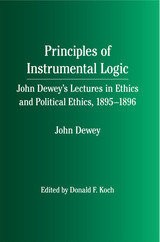
John Dewey delivered two sets of related lectures at the University of Chicago in the fall quarter 1895 and the spring quarter 1896. Designed for graduate students, the lectures show the birth of Dewey’s instrumentalist theory of inquiry in its application to ethical and political thinking.
From 1891 through 1903, Dewey attempted to develop a revolutionary experimentalist approach to ethical inquiry, designed to replace the more traditional ways of moral theorizing that relied on the fixed moral knowledge given in advance of the situations in which they were applied. In the lectures on the logic of ethics, he sets forth and defends the view that the "is" in a moral judgment such as "This is good" is a coordinating factor in an inquiry. Although the subject matter of the lectures is highly technical, its significance is paramount. It provides the key to and opens the door for a theory that preserves the difference between strictly scientific inquiry and moral inquiry even while it provides a "scientific treatment" of the latter.
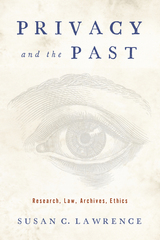

Depictions of the Holocaust in history, literature, and film became a focus of intense academic debate in the 1980s and 1990s. Today, with the passing of the eyewitness generation and the rise of comparative genocide studies, the Holocaust’s privileged place not only in scholarly discourse but across Western society has been called into question.
Probing the Ethics of Holocaust Culture is a searching reappraisal of the debates and controversies that have shaped Holocaust studies over a quarter century. This landmark volume brings international scholars of the founding generation of Holocaust studies into conversation with a new generation of historians, artists, and writers who have challenged the limits of representation through their scholarly and cultural practices. Focusing on the public memorial cultures, testimonial narratives, and artifacts of cultural memory and history generated by Holocaust remembrance, the volume examines how Holocaust culture has become institutionalized, globalized, and variously contested. Organized around three interlocking themes—the stakes of narrative, the remediation of the archive, and the politics of exceptionality—the essays in this volume explore the complex ethics surrounding the discourses, artifacts, and institutions of Holocaust remembrance.
From contrasting viewpoints and, in particular, from the multiple perspectives of genocide studies, the authors question if and why the Holocaust should remain the ultimate test case for ethics and a unique reference point for how we understand genocide and crimes against humanity.
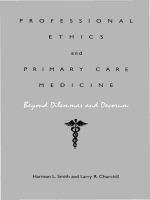
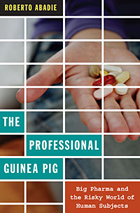

The government, the media, HMOs, and individual Americans have all embraced programs to promote disease prevention. Yet obesity is up, exercise is down, teenagers continue to smoke, and sexually transmitted disease is rampant. Why? These intriguing essays examine the ethical and social problems that create subtle obstacles to changing Americans' unhealthy behavior.
The contributors raise profound questions about the role of the state or employers in trying to change health-related behavior, about the actual health and economic benefits of even trying, and about the freedom and responsibility of those of us who, as citizens, will be the target of such efforts. They ask, for instance, whether we are all equally free to live healthy lives or whether social and economic conditions make a difference. Do disease prevention programs actually save money, as is commonly argued? What is the moral legitimacy of using economic and other incentives to change people's behavior, especially when (as with HMOs) the goal is to control costs?
One key issue explored throughout the book is the fundamental ambivalence of traditionally libertarian Americans about health promotion programs: we like the idea of good health, but we do not want government or others posing threats to our personal lifestyle choices. The contributors argue that such programs will continue to prove less than wholly successful without a fuller examination of their place in our national values.

The United States was founded on a commitment to religious tolerance. Based on this commitment, it has become one of the most religiously diverse and religiously observant liberal democracies in the world. Inherent in this political reality is the question, "What is the appropriate relationship between religious beliefs and public life?" This is not a new question, but in contemporary US politics it has become a particularly insistent one. In this intelligent, wide-ranging book, Kristin Heyer provides new and nuanced answers.
Prophetic and Public employs the discourse of public theology to consider what constitutes appropriate religio-political engagement. According to Heyer, public theology connects religious faith, concepts, and practices to their public relevance for the wider society. Her use of public theology concepts to address the appropriate possibilities and limits for religio-political engagement in the United States is both useful and enlightening.
Heyer approaches the relationship between public morality and religious commitment through the example of the Catholic Church. She looks at two prominent Catholics—Michael Baxter and Bryan Hehir—as a way of discussing norms for practice of public theology. Heyer also analyzes case studies of three US Catholic advocacy groups: The US Conference of Catholic Bishops, NETWORK, and Pax Christi USA. Through her analysis she shows the various ways that the organizations' Catholic identity impacts their social and political efforts. From her investigations come norms that define possibilities and limits for political actions based on religious conviction.
This deeply thoughtful book examines what is truly fundamental and inescapable about public life and private religious belief in the United States. In doing so, it makes skillful use of the tools of theology, philosophy, law, and advocacy to demonstrate that the Catholic Church reveals great diversity in its public theology, providing legitimate options for a faithful response to urgent political issues.
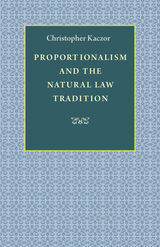

One of the most heated debates in recent times among Christian ethicians has been over what has come to be called "proportionalism." Opponents have argued that proportionalists are intent on relativizing theology norms and theh concept of intrinsic evil. Proponents, on the other hand, argue that they are merely developing a traditional notion of proportion of reason. Bernard Hoose puts this debate in context by showing its roots in the writings of European moral theologians and its flowering in the writings of their American colleagues. He uncovers a number of confusions that have bedeviled the argument while revealing how important the issues are for establishing in coherent Christian ethics in the twentieth century.

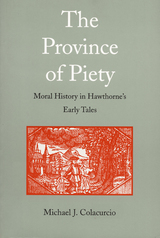
Informed by comprehensive historical research, the author shows that Hawthorne was steeped in New England historiography, particularly the sermon literature of the seventeenth century. But, as Colacurcio shows, Hawthorne did not merely borrow from the historical texts he deliberately studied; rather, he is best understood as having written history. In The Province of Piety, originally published in 1984 (Harvard University Press), Hawthorne is seen as a moral historian working with fictional narratives—a writer brilliantly involved in examining the moral and political effects of Puritanism in America and recreating the emotional and cultural contexts in which earlier Americans had lived.
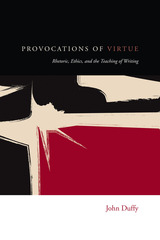
Drawing upon Aristotle’s Nicomachean Ethics and the branch of philosophical inquiry known as “virtue ethics,” Provocations of Virtue calls for the reclamation of “rhetorical virtues” as a core function in the writing classroom. Duffy considers what these virtues actually are, how they might be taught, and whether they can prepare students to begin repairing the broken state of public argument. In the discourse of the virtues, teachers and scholars of writing are offered a common language and a shared narrative—a story that speaks to the inherent purpose of the writing class and to what is at stake in teaching writing in the twenty-first century.
This book is a timely and historically significant contribution to the field and will be of major interest to scholars and administrators in writing studies, rhetoric, composition, and linguistics as well as philosophers and those exploring ethics.

During combat, soldiers make life-and-death choices dozens of times a day. These individual decisions accumulate to determine the outcome of wars. This work examines the theory and practice of military ethics in counterinsurgency operations. Marcus Schulzke surveys the ethical traditions that militaries borrow from; compares ethics in practice in the US Army, British Army and Royal Marines Commandos, and Israel Defense Forces; and draws conclusions that may help militaries refine their approaches in future conflicts. The work is based on interviews with veterans and military personnel responsible for ethics training, review of training materials and other official publications, published accounts from combat veterans, and observation of US Army focus groups with active-duty soldiers. Schulzke makes a convincing argument that though military ethics cannot guarantee flawless conduct, incremental improvements can be made to reduce war’s destructiveness while improving the success of counterinsurgency operations.
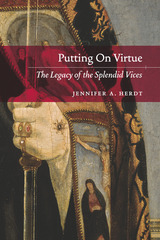
READERS
Browse our collection.
PUBLISHERS
See BiblioVault's publisher services.
STUDENT SERVICES
Files for college accessibility offices.
UChicago Accessibility Resources
home | accessibility | search | about | contact us
BiblioVault ® 2001 - 2024
The University of Chicago Press









